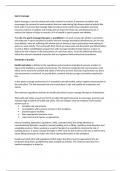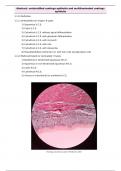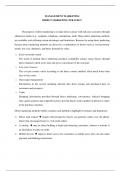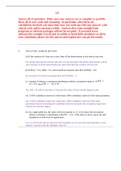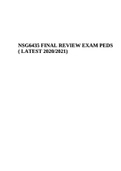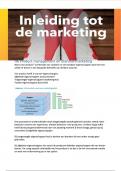Essay
Unit 32 Sport Massage (A) Distinction. BTEC Level III Sport
- Module
- Unit 32 - Sports Massage
- Institution
- PEARSON (PEARSON)
Distinction grade, learning aim A. Unit 32 Sport massage assignment. Understand the role of a sports massage practitioner. Investigate and explain the role, legislation, professional standards of practice. Professional bodies including complimentary and natural health care council, society of sport...
[Show more]
